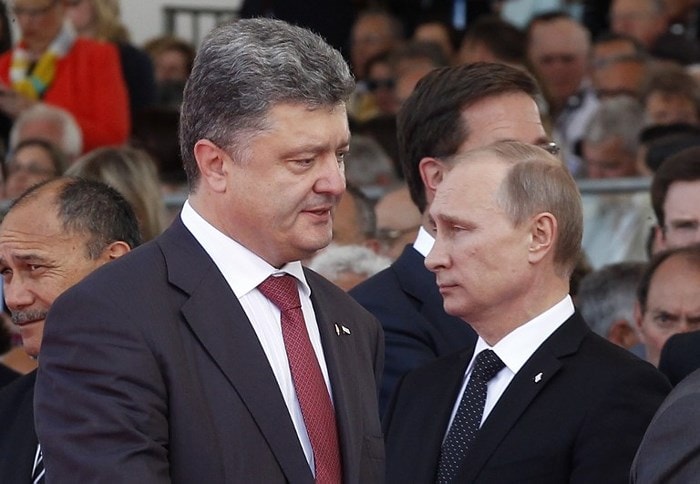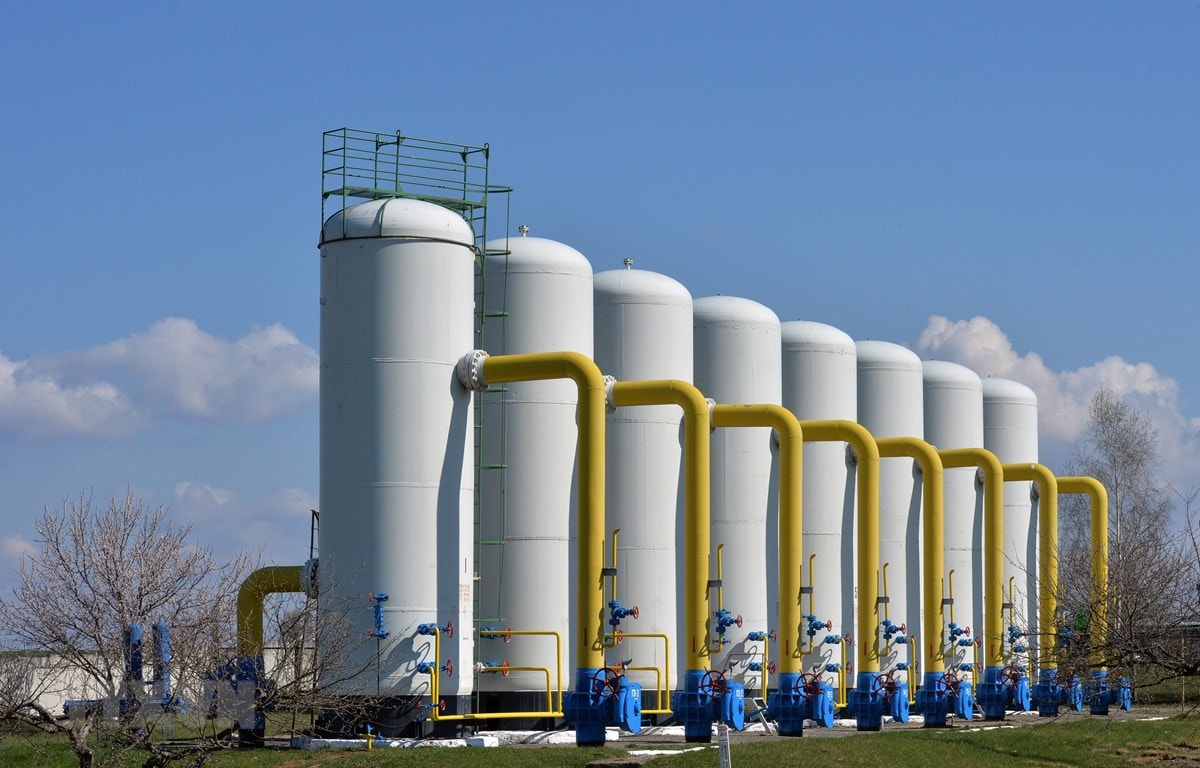Russia - Ukraine: "A broken mirror is hard to mend"
(Baonghean) - Russia and Ukraine officially terminated the Treaty of Friendship, Cooperation and Partnership between the two countries. Thus, the "string" connecting the fragile relationship between the two countries was finally broken and the level of tension between the two neighbors will be very difficult to cool down.
 |
| Ukrainian President Petro Poroshenko (right) and Russian President Vladimir Putin. Photo: Unian |
irreparable
Ukraine announced that it had received a diplomatic note from Russia on the termination of the Treaty of Friendship, Cooperation and Partnership between the two countries. Thus, both Russia and Ukraine have taken decisive steps to withdraw from the friendship treaty signed more than 20 years ago. Previously, in September 2018, the Kiev government officially notified Moscow of its intention to withdraw from the friendship treaty. 3 months later, Ukrainian President Petro Poroshenko signed a law allowing the cancellation of this treaty, declaring that it was "part of Ukraine's strategy of reorienting towards Europe".
The Treaty of Friendship, Cooperation and Partnership was signed on 31 May 1997 and entered into force on 1 April 1999 for a period of 10 years. The document includes a provision for automatic extension for another 10 years if the parties do not object. Otherwise, the treaty will be terminated. The treaty stipulates the principle of strategic cooperation and the declarations of inviolability of existing borders, respect for territorial integrity and the respective obligations of both parties to refrain from using their territories to harm the security of the other.
The two countries' termination of the friendship treaty took place in the context of bilateral relations that have been deteriorating since the beginning of 2014 due to the Crimea issue and the conflict in Eastern Ukraine. The Russia-Ukraine Treaty of Friendship, Cooperation and Partnership, which is considered the treaty that binds the two countries' relationship at the highest level, was canceled. Previously, the two sides gradually withdrew treaties and agreements in bilateral relations such as defense, gas supply... In other words, the Friendship Treaty is only a formality, even if it is not officially canceled, the Russia-Ukraine relationship no longer exists as a friendly relationship, the two sides also terminated many agreements to maintain cooperation.
Ukraine has long advocated “leaving Russia” to “head west”. In May 2017, when the EU decided to exempt visas for Ukrainians, Ukrainian President Poroshenko called it a “divorce from Moscow” and declared that Ukraine had “sent its final goodbye to Russia”. Since then, the relationship between the two countries has only existed with tensions and disagreements. The peak was in November last year, when Russia-Ukraine relations were pushed to a new level of seriousness after Russia captured three Ukrainian naval ships and their crews in the Black Sea near the Kerch Strait, accusing them of violating territorial waters. The two countries have issued conflicting statements about the incident. However, with the latest steps, it can be seen that the relationship between the two neighboring countries will only become more distant, with no solution to save it. The two sides no longer have effective mechanisms to help resolve bilateral conflicts and tensions.
 |
| Gas pipeline at a gas pumping station in the town of Boyarka, Ukraine. Photo: AFP |
Unforeseen consequences
The breach of the Treaty of Friendship, Cooperation and Partnership between Russia and Ukraine is like the fragile thread that binds the two countries' relations. And this will certainly lead to huge economic and security consequences and losses for both Ukraine and Russia. Economically, both Russia and Ukraine are under great pressure due to recession. Ukraine has been devastated by war, while the Russian economy has suffered heavily from the sharp drop in oil prices and sanctions from the West.
The termination of the Treaty of Friendship and Cooperation means that the frameworks for economic and trade cooperation between the two sides will quickly be paralyzed. In the latest move, Russia has announced that it will stop gas transit through Ukraine. Moscow previously chose Ukraine and Bulgaria to transit gas to Türkiye. However, now that there is a pipeline running directly from Russia to Türkiye called "Turkish Stream", they no longer need transit pipelines. Ukraine can continue to transit gas from Russia to Europe, but the commitments for this contract are very unclear. Although the two sides are in a state of tension, Russia is still an important trading partner of Ukraine. Once the two sides cancel trade transactions, it will inevitably lead to economic consequences for both.
Politically, Ukraine's determination to "go West" will be a headache for Russia. Ukraine is promoting the process of joining NATO as well as the European Union. Although this path is considered not easy, once Kiev is completely in the ranks of Western organizations, it will be a great insecurity for Russia. Moscow has repeatedly criticized the "tolerance" of the West, especially the support of the North Atlantic Treaty Organization (NATO), the European Union (EU) and the United States for President Poroshenko's declarations of war on the Crimea issue, causing Kiev to take risky and provocative actions on the peninsula. In the context of relations between Russia and European countries showing no signs of improvement, Ukraine's closer ties with countries in the "old continent" not only pushes the Kiev-Moscow relationship further away but also always poses the risk of confrontation.
In such a context, the breach of the Russia-Ukraine Friendship Treaty means that the two countries will no longer have the ties to resolve tensions, especially those related to borders and territories... This will contain unpredictable risks in case the tensions escalate into conflict.
It seems that the future of a rapprochement in the Russia-Ukraine relationship is increasingly distant. Importantly, perhaps both Russia and Ukraine need to clearly understand the “red lines” in the relationship between the two countries. Once tensions flare up, the worsening situation will seriously threaten peace, security and stability in the European region as well as the world./.
